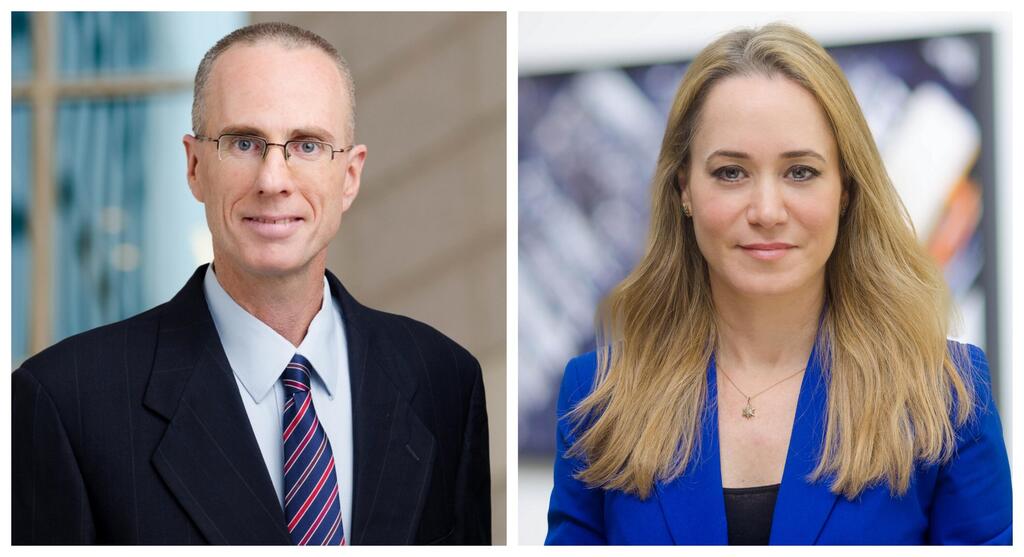
Law Gateways
Meitar Law Offices: Predicting the tech trends ahead
The Israeli law firm has highlighted the trends it views as significant - and volatile - in the tech space
“We expect cyber to continue to be very prominent, given the increasing number of cyber attacks, both actual and threatened,” explain the tech experts of Israeli law firm Meitar Law Offices. “We also expect foodtech and proptech to become more attractive given global trends. On the other hand, we believe that ICO/Crypto is volatile. Web3 will likely gain more attention in the near future.”
Meitar Law Offices is one of the top Israeli law firms participating in CTech’s Most Important Gateways to Israeli Tech series. The heads of the firm's tech department answered a series of questions asked by CTech about their involvement in the Israeli ecosystem and how they help tech companies across a wide range of sectors and stages.
Name of firm: Meitar Law Offices
Tech sectors of expertise: Cyber, fintech, gaming, machine learning, enterprise software, quantum computing, internet, eCommerce, software tools, healthcare & life sciences, and foodtech.
Number of lawyers in the tech and VC departments: 135
Heads of department: N/A
Notable clients:
- Startups: Syte, Artlist, Axix, ImmunaAI, Zero Abstraction, Inc., Classiq Technologies, and more
- Growth: Wiz, Orca, Drivenets, Yotpo, Quilt, Bringg, Pecan, At-Bay, Armis, Granulate, ActiveFence, Fireblocks, and more
- Tech public companies: ironSource, monday.com, Riskified, Global-e, Similarweb, Innoviz, Cellebrite, Taboola, JFrog, Fiverr, Kornit, and more
- VCs: Team8, Bessemer Venture Partners, Aleph, Viola, Grove Ventures, JVP; Entrée Capital, TLV Partners, Pitango, OurCrowd
Notable deals in 2020-2022:
- Representation of Wiz in its Series A financing in the amount of $100 million and in its Series B financing in the amount of $130 million at a $1.7 billion valuation. We act as the Company’s counsel covering all areas of legal advice (corporate, employment, tax, etc.), along with contributing from our vast business and market experience.
- Representation of Yotpo in raising $120 million in a primary transaction at a $1.3 billion pre-money valuation. In addition, early-stage investors, founders, and current and former employees sold shares in a secondary sale by way of a tender offer for aggregate consideration of $110 million.
- Representation of Orca Security in its Seed financing and in its Series A, B, and C financing rounds.
- Representation of Habana Labs Ltd. in its acquisition by Intel Corporation in a cash deal worth $2 billion. This transaction is one of the 10 most valuable exits in Israeli history.
- Representation of Guardicore Ltd. in its acquisition by Akamai Technologies Inc. for $600 million.
- Representation of Francisco Partners, US PE fund, in its acquisition of MyHeritage, for $650 million.
- Representation of Global-e Online Ltd. in its IPO on NASDAQ at a $3.6 billion valuation, the follow-on offering by shareholders of $750 million at an $8.7 billion valuation, and its subsequent acquisition of Flow Inc. for $500 million.
- Representation of monday.com in its IPO on NASDAQ at a $6.8 billion valuation.
Following the SPAC and IPO boom in 2021 - What trends are you expecting for the upcoming short and medium-term?
We assume that there will be significantly fewer IPOs of Israeli companies during 2022 compared to 2021. First, a significant number of the Israeli mature companies went public in 2020 and 2021; there are obviously many other successful Israeli growth companies that will mature and become ready for an IPO in the future. But the 22 Israeli companies that went public in the U.S in 2021 represented a very significant number of the growth companies that became mature for an IPO. Second, the significant reduction in the market valuations of many of the Israeli companies that went public in 2020 and 2021 is expected to result in fewer IPOs of Israeli companies. Third, we expect the valuations of growth companies to be more "relaxed" than in 2021, which may result in such companies delaying their IPOs until their valuations increase significantly. Fourth, we expect the unrest in Europe and increasing inflation to adversely affect investors' "appetite" for growth companies. Finally, and partially due to the foregoing, we expect strategic M&A to become again a viable alternative for an exit event for Israeli growth companies, affecting the number of new IPOs.
Will we continue to see funding rounds at the fantastic valuations we saw last year? Why?
As noted above, while we expect a continued interest by local and foreign investors in Israeli technology startups, we expect valuations to be somewhat more "relaxed". An increase in inflation rates could create another avenue for deployment of cash by large funds, at the expense of new IPOs. Also, technology companies may again focus on M&A as an exit strategy, after a relatively lower number of M&A transactions in 2021 compared to previous years.
Why aren’t there enough Israeli institutional investors in tech? How should they be encouraged?
In fact, a recent amendment to Israeli law, which provides that Israeli institutional investors' investments in Israeli technology companies will be partially "insured" against a reduction in valuation, has motivated many Israeli institutional investors to commence such investments and we have indeed seen an increasing number of such investments. The Israeli institutional investors generally do not yet lead the investments, but we expect this to change over time.
Are there any sub-sectors that seem riskier to you?
We expect cyber to continue to be very prominent, given the increasing number of cyber attacks, both actual and threatened. We also expect foodtech and proptech to become more attractive given global trends. On the other hand, we believe that ICO/crypto is volatile. Web3 will likely gain more attention in the near future.
What is the most important thing an entrepreneur should focus on when selecting a law firm?
Experience of the relevant partner with working with startups, specifically in the relevant field.
Basic mistakes made by entrepreneurs:
Electing the wrong co-founder (e.g., due to insufficient resources devoted to such a decision); approaching potential VC investors with an immature technology; and raising at a high valuation that cannot be substantiated.
What are the most important parameters for a law firm when deciding to represent an entrepreneur in a deal, and what would be a reason to turn down an entrepreneur?
- Entrepreneur’s previous experience and what VC investors think of the technology (if applicable), maturity of the technology.
- An impression that the technology is irrelevant or that the founder is not focused.
What are the most crucial stages of a deal?
For early-stage, getting a term sheet from a reputable VC investor. For more mature companies, completing the technology DD successfully.
Examples of an interesting deal from the past two years from which important lessons can be learned:
We represented Global-e since its formation in 2013 and through its various investment rounds, its IPO, the follow-on offering by shareholders, its $500 million acquisition of U.S-based Flow Inc., and many other matters.
The company's valuation in its Series D and Series E investment rounds increased in a very impressive and consistent manner, with its May 2021 $3.5 billion IPO valuation representing a significant multiple of its Series E valuation, which closed just over a year before the IPO.
The pricing of the IPO was on the second and most intense night of the "Guardian of the Walls" military operation in May 2021, with all of us sitting in a big conference room with multiple screens, some of which were used for ongoing Zoom calls with the underwriters and the others used to watch the news. Multiple sirens, indicating missiles that were aimed at Israel, could be heard very clearly. The DNA of the organization has not changed, and the three founders of the company still share one room in the company's new offices, to which the company moved in April 2022.















